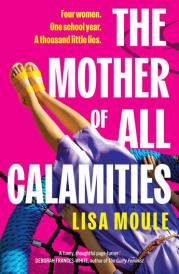Professor Eastham High Risk Prostate Cancer Interview

Professor Eastham High Risk Prostate Cancer Interview
Surgery should be given serious consideration for clinically-localised but high risk prostate cancers, argues Professor James A. Eastham, Chief of the Urology Service, Department of Surgery, Memorial Sloan- Kettering Cancer Center in New York.
Professor Eastham told the Urological Society of Australia and New Zealand's Annual Scientific Meeting in Melbourne that the latest evidence suggests surgery is a better option for prostate cancer cases that historically would have been referred to the radiation oncologist.
His comments follow the release of an Observational Study of 34,515 men in Sweden which showed that the risk for death was higher for radiotherapy than for surgery in the low-, intermediate- and high-risk categories.
Eastham says whereas traditionally lower-risk patients were treated with surgery and higher risk patients with radiation, now there is a case for the low-risk cancers to be 'left alone" or monitored with Active Surveillance, and the high-risk patients be treated surgically.
Around 20,000 Australian men are diagnosed with prostate cancer each year, with almost 3,000 men dying from the disease annually.
The Urological Society of Australia and New Zealand is the peak professional body for urological surgeons in Australia and New Zealand. Urologists are surgeons who treat men, women and children with problems involving the kidney, bladder, prostate and male reproductive organs. These conditions include cancer, stones, infection, incontinence, sexual dysfunction and pelvic floor problems.
Interview with Professor James A. Eastham
Question: Can you talk about why surgery should be given serious consideration for clinically-localised but high risk prostate cancers?
Professor James A. Eastham: In high-risk disease which are men who have higher PSA levels or more worrisome features on their prostate biopsy the tradition has been to use radiation therapy and that has primarily been because men that were treated with surgery had higher rates of PSA recurrences. But, more recent data has suggested that while surgery does have a higher rate of PSA or biochemical recurrence, the chance that the male ultimately dies of prostate cancer was actually less if he was treated with surgery than if he was treated with radiation therapy.
It's basically reconsidering how we use surgery in higher risk prostate cancer.
Question: Can you talk about your research leading up to this?
Professor James A. Eastham: There have been several studies. The study I was involved with was just one of the studies but a number of studies have reached the same conclusion that men with higher risk disease seem to do a little bit better if treated with surgery than if they were treated with radiation therapy.
This certainly doesn't mean radiation therapy is wrong or it shouldn't be used in some men but the converse of that is that it doesn't mean that surgery is wrong and many men will benefit if they are treated surgically as there first step in their course of cancer management.
Question: Where did your research take place?
Professor James A. Eastham: The research study that I was involved with was a single institution study at Memorial Sloan-Kettering Cancer Center in New York and it was a joint study by our Radiation Oncologist and surgeons that performed Radical Prostatectomy and we looked at groups of men who were treated with surgery or radiation and followed them for many years to see how they did.
Question: What are the advantages of surgery over radiation?
Professor James A. Eastham: From the study that we did the main advantages of surgery over radiation was that if you have high risk disease you were less likely to develop metastases and less likely to die from prostate cancer.
The disadvantage is that it's surgery and it's more invasive than radiation therapy but in the longer term you see the benefits in terms of preventing metastases.
Question: Can you also talk us through your thoughts surrounding low-risk cancers?
Professor James A. Eastham: Using the Prostate Specific Antigen (PSA) blood test which is one of the ways in which we screen a man for Prostate Cancer and typically if the PSA is above a certain number we recommend further interventions usually a biopsy at the prostate. Many of the cancers that we diagnose during PSA screening are considered as low-risk meaning that they do not look very angry under the prostate and there Gleason Score is relatively low. The Gleason Score is the way in which we characterise the way the cancer looks under the microscope, the PSA is very elevated and the Prostate feels normal on the digital rectal examination, and those are men who are considered as low risk. Many of those men will not benefit from treatment; meaning that the cancer grows very slowly and it doesn't threaten their health; because of that treatment is not necessarily advised at all because the man will not benefit, at all, from the treatment but he will suffer the consequences of treatment. The consequences of treatment are not insignificant they relate to erectile dysfunction, bowel and bladder problems and things like that. We want to select patients appropriately that will benefit from treatment and not over-treat men who won't benefit from treatment.
Question: Will these low risk cancers be left alone, for long periods of time?
Professor James A. Eastham: It doesn't mean that they'll be low risk forever, the man does have to be monitored but immediate treatment for many low-risk Prostate Cancers seems to be unnecessary.
Question: What inspired you to begin research surrounding prostate cancer?
Professor James A. Eastham: From a surgical standpoint especially neurologic surgery it is a very technically demanding operation and it involves very important quality of life issues and I was intrigued by the technical aspects of doing an operation like that and how we can improve and what we can do technically to make things better. I had wonderful mentors that were involved in that area and they encouraged and inspired me to go into the field.
The other is the whole issue of risk and that there are prostate cancers that are lethal and there are prostate cancers that are basically not going to threaten the patient in terms of quality and quantity of life. And I wanted to look at the psychotomy of Prostate Cancer which is the most commonly diagnosed cancer in American men and the second leading cause of male cancer death however there is a big discrepancy between the number of men diagnosed and the number of men dying from the disease meaning that there is a significant risk for over-treatment.
The field is intellectually and technically challenging; it is a very stimulating field for me.
MORE
- Chiropractic Myths & Truths
- Gerard Fogarty Arthritis and Knee Replacement...
- Kym Ellery The ELLERY Eyewear Collection Interview
- Dr Ross Walker The Real Modern Killers Interview
- Shelly Horton Hay Fever Help Interview
- Sebastian VanVeenendaal Royal Rehab's Beach...
- Abigail Koch Family Private Health Insurance...
- Monique Cashion Organic Awareness Month Interview
- Dr Bill Harris Omega-3s Interview
- The Top Ten Health Myths Busted
- Professor Bolin IBD Management a Life-Long...
- Anthia Koullouros Best Cold and Flu Defence...
- Leprosy in NSW
- Julie-Anne Mitchell Go Red for Women Healthy...
- Insight into Chronic Disease Hospitalisations...
- Jeff Chan Mobile Phone Allergies Interview
- How to Conquer Bad Winter Health Habits
- Bad Cholesterol Behind Cancer Spreading In Body
- New Screening Test Recommended To Help Prevent...
- Support For The Rural Nurse Workforce A...
- Kathy Nielsen Ovarian Cancer Australia National...



